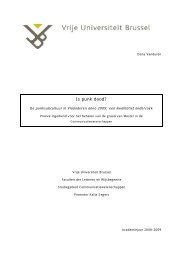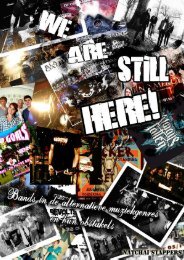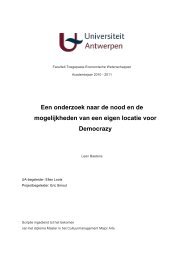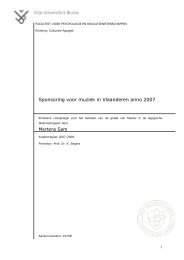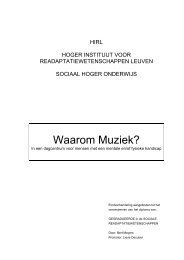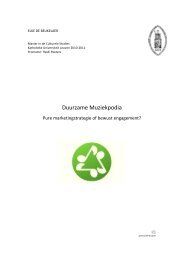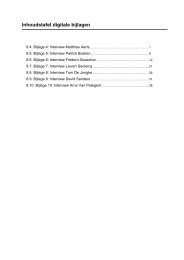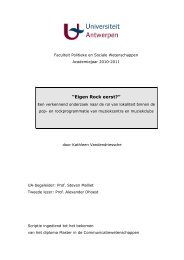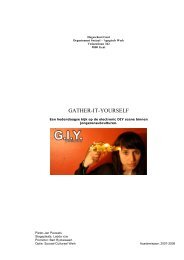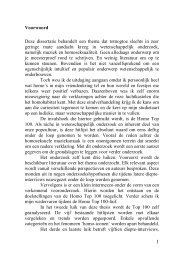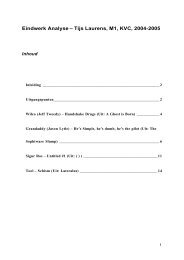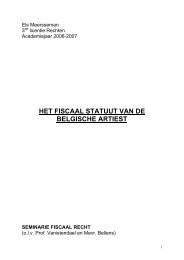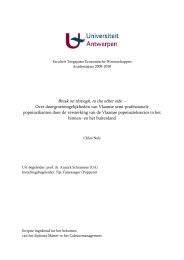Hip hop identity in a township reality. - Poppunt
Hip hop identity in a township reality. - Poppunt
Hip hop identity in a township reality. - Poppunt
Create successful ePaper yourself
Turn your PDF publications into a flip-book with our unique Google optimized e-Paper software.
Gough dist<strong>in</strong>guish, but that did not occur <strong>in</strong> our <strong>in</strong>terviews, or at least not<br />
frequently enough. Most of the times it concerns pretty specific sentence<br />
constructions, such as the use of ‘the most th<strong>in</strong>g’ for ‘the th<strong>in</strong>g I [verb] most’ or ‘X’s<br />
first time’ for ‘the first time that X …’ (de Klerk and Gough: 363).<br />
Based on our data we can dist<strong>in</strong>guish another grammatical feature that is not really<br />
named by these authors. It concerns the mistakes that are made regard<strong>in</strong>g to plural<br />
and s<strong>in</strong>gular verb forms.<br />
There’s (are) chicks <strong>in</strong>volved. (Bad Luck)<br />
There was (were) gangstas here too. (Shaun)<br />
In hip <strong>hop</strong> there is (are) rooms as well. (Full Stop)<br />
At this po<strong>in</strong>t it is important to note that de Klerk and Gough th<strong>in</strong>k “it is important<br />
not to treat all of these grammatical features monolithically and as all equally<br />
representative of a uniform BSAE. There is <strong>in</strong> this respect a considerable variability<br />
with regard to the relative acceptability and utilisation of this features and<br />
structures.” (de Klerk and Gough: 364)<br />
3.2. <strong>Hip</strong> <strong>hop</strong> slang<br />
Introduction<br />
We will consider slang as “(…) the non-standard or non-dialectical use of words <strong>in</strong> a<br />
language of a particular social group, (…).” (Wikipedia 16 ) Slang consists partly of<br />
neologisms, but most of the time it is standard words that are attributed a new and<br />
uncommon mean<strong>in</strong>g. Through “(…) a process of creative and <strong>in</strong>formal use and<br />
adaptation, (…)” (Wikipedia) a new language is created, or at least a new usage for<br />
certa<strong>in</strong> words from a language. In the end, some k<strong>in</strong>d of ‘secret’ language orig<strong>in</strong>ates,<br />
that is only understood by members of that certa<strong>in</strong> group who use the slang, and<br />
that excludes non-members from the conversation. Slang functions as a means to<br />
recognise members of the same group, and to be able to differentiate that particular<br />
group from the society at large (Wikipedia). Consequently, slang is often l<strong>in</strong>ked to<br />
certa<strong>in</strong> subcultures, rang<strong>in</strong>g from music genres to drug users. Yet, slang differs<br />
from jargons, because the latter are rather related to specific fields or professions<br />
(Wikipedia). For example, <strong>in</strong> conversations concern<strong>in</strong>g their profession, computer<br />
specialists use amongst each other very specific words to refer to the actions they<br />
perform and the material that they use. This rather technical vocabulary consists of<br />
16<br />
http://en/wikipedia.org/wiki/Slang



